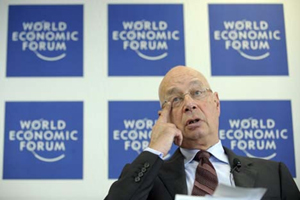
This article was last updated on April 16, 2022
Canada: ![]() Oye! Times readers Get FREE $30 to spend on Amazon, Walmart…
Oye! Times readers Get FREE $30 to spend on Amazon, Walmart…
USA: ![]() Oye! Times readers Get FREE $30 to spend on Amazon, Walmart…
Oye! Times readers Get FREE $30 to spend on Amazon, Walmart…
 The conversations on the ground in Davos, Switzerland are likely to pick up where they left off at the 2008 World Economic Forum’s annual meeting: how did we get here?
The conversations on the ground in Davos, Switzerland are likely to pick up where they left off at the 2008 World Economic Forum’s annual meeting: how did we get here?Financial markets will dominate the talk in the panels and in the hallways, much to the chagrin of those who felt that last year’s WEF focused too much on banks and not enough on health and social issues.
But it’s hard to imagine any other topic generating buzz when the situation has moved from a subprime-related crisis to what many are calling the biggest system-wide meltdown since the Great Depression.
Last year, delegates and VIPs worried about waking up to headlines about more writedowns. This year, it’s not out of the realm of possibility that all UK banks could be nationalized by the time the meetings are over.
And given the enormity of the problem, organizers and attendees are already working to shift the image of the event as one one of lavish parties at an exclusive ski resort.
"I’m sure there will be a different tone this year and a sense that we need to get down to work," WEF spokesman Mark Adams told the Associated Press. "There are 230 working sessions and that’s what people are coming for."
That’s encouraging given how tone-deaf executives have been about expenditures while asking for government money. I’ll certainly be expecting to glimpse a CEO sitting back with me and other journalists in economy class when I fly to and from the event.
And the flight won’t even be full, given the number of people backing out of the event and avoiding the trap of being linked with the luxury elite altogether.
Former Merrill Lynch CEO John Thain is a prime example. Last week, Thain was still scheduled to show up at WEF and participate in a panel entitled "Scenarios for the Future of the Global Financial System."
Now he won’t attend and is better known for a decorating spree than anything else he did at Merrill Lynch.
Despite his position as one of the elite at Wall Street, he was just as blindsided by the enormity of the crisis as anyone else, judging by the interview he gave to CNBC at Davos last year.
"We don’t need more capital and we’re now going to focus on our business," he said in January 2008.
What a difference a year makes.

Be the first to comment